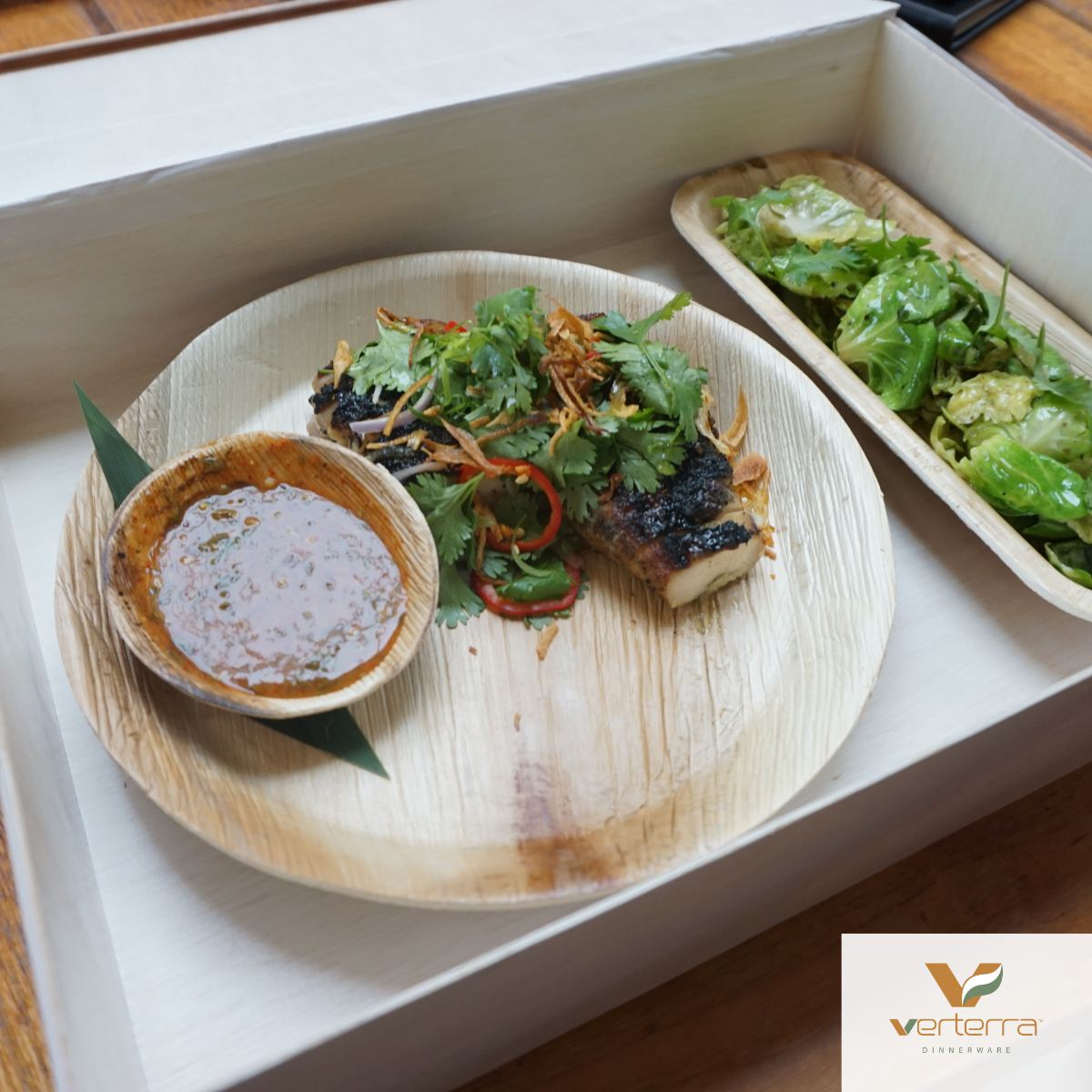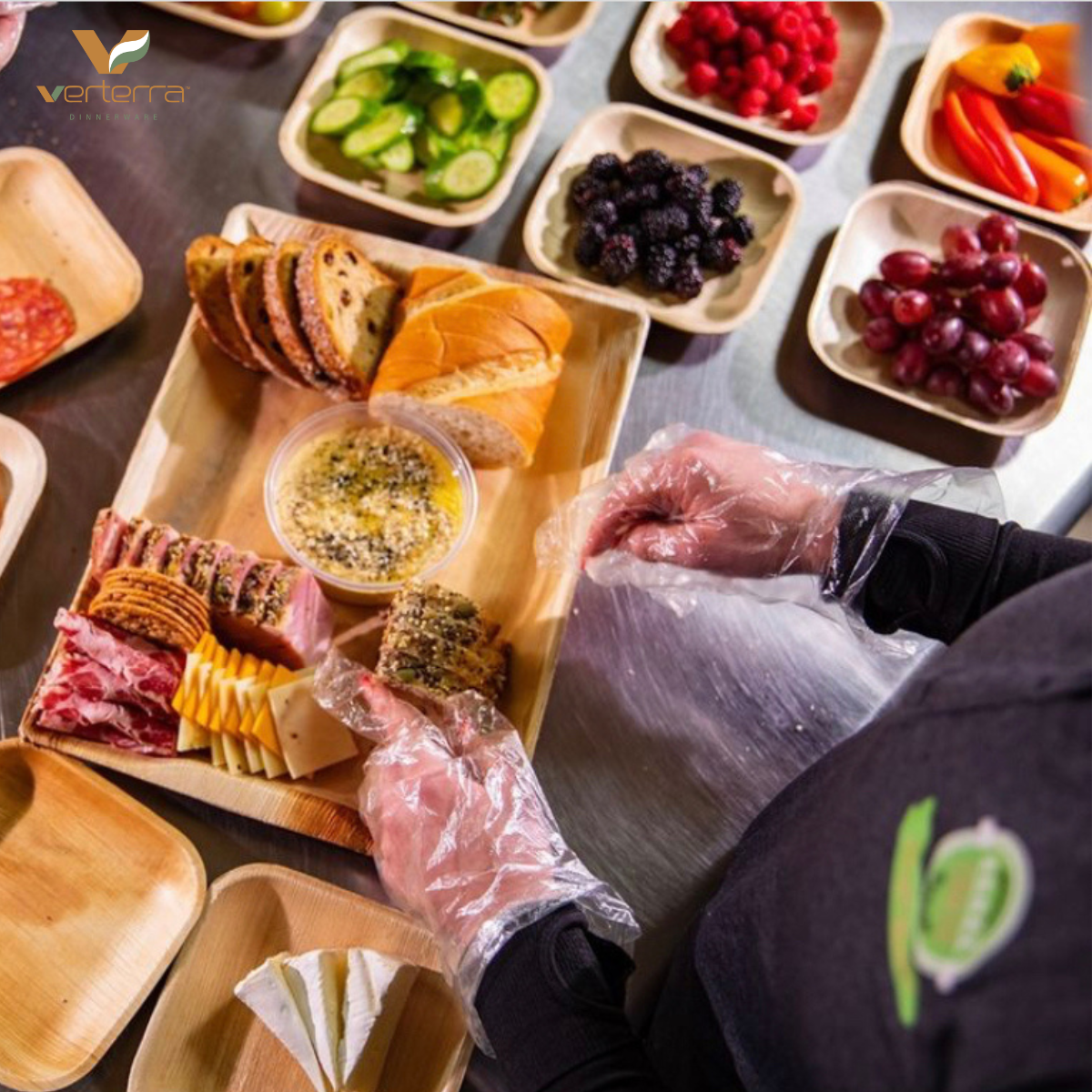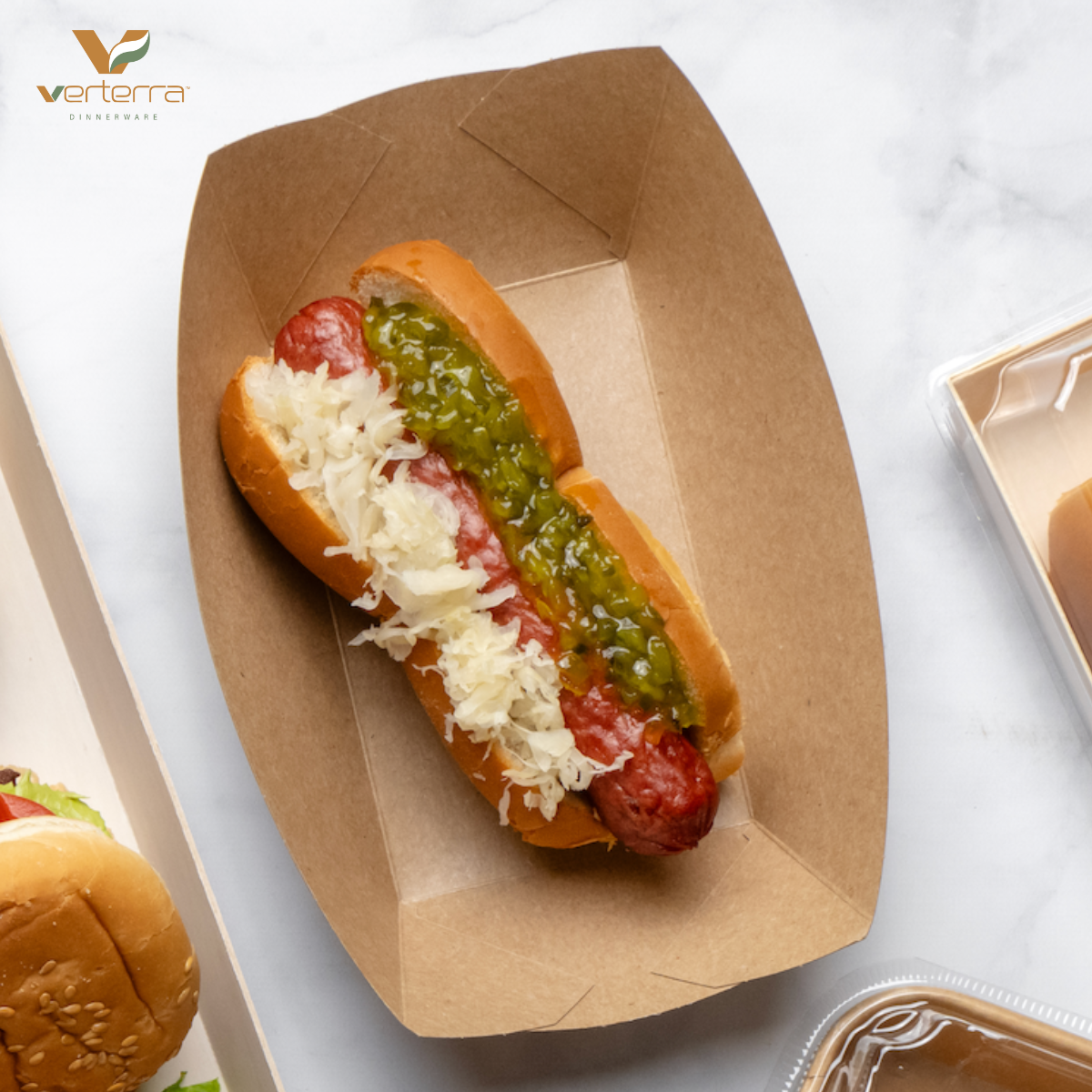
PART 1 of 2 : A Guide to Easy Composting for Catering Businesses
In the catering industry, waste management can become a logistic headache. While some event spaces take care of the waste management, often the caterer is responsible for figuring out what to do with all of the waste. Composting is not only an eco-friendly solution, but it can simplify your waste management logistics. Food waste is already compostable, so the next step to creating a more sustainable catering business is to adapt compostable dinnerware and flatware.
With customers demanding more eco-friendly options than ever, advertising your composting efforts can position your business as environmentally responsible, giving you an edge with customers. And in the grand scheme of things, composting reduces your carbon footprint, helping you contribute to a cleaner environment for the future.
With all of the benefits, composting seems like a no-brainer, yet misinformation about composting for catering holds many small businesses back. Read on to learn about how composting for catering can be easy, and why it’s important to choose the right products for composting.
What is composting and why is it important
Composting is a process where organic materials break down to create soil “amendments.” A soil amendment is like a superfood for soil, and helps plants grow. While all organic matter breaks down eventually, it’s only composting when the perfect mix of organic matter meets an ideal environment that leads to fast decomposition. The result is called compost — the perfect pH and salinity that plants crave in order to thrive.
It’s kind of like magic. Composting is the most sustainable waste management process because it literally creates new life out of waste. Unlike recycling, which requires resources like heat, water, and electricity to produce, composting is a natural process that requires relatively little intervention.
An important caveat is that compost should only go with compost. Throwing out compostable materials in the regular trash means that they end up in a landfill. While you may think that’s better than plastic ending up in landfills, the problem is that when organic (i.e. compostable) materials break down, they produce methane — a major greenhouse gas. Therefore, it’s important when using compostable materials to actually compost them.
So what can and cannot be composted? All food scraps, paper goods, and yard trimmings can be thrown in the compost. When you’re composting at home, you’ll want to avoid composting high-acid foods — like citrus fruit — and animal bones. These items can negatively affect the composition of compost.
The good news is that commercial composting, which is generally used in composting for catering purposes, is able to tolerate higher amounts of bones and high-acid foods. If you’re using a commercial composting program, you won’t have to worry about completely cutting out these ingredients, but it is important to try and reduce the amount that is thrown in the compost.
Come back for part 2 where we explore the difference between biodegradable and certified compostable. There is a difference!
Also in The Dirty Dish

Disposable Luxe: How Compostable Tableware is Reshaping the Event Industry
Gone are the days when disposable meant flimsy, boring, and environmentally careless. In 2025, today’s event professionals are embracing “disposable luxe”—a fast-growing movement that combines elevated aesthetics with eco-conscious choices at affordable prices, making sustainability not just a requirement, but a statement.

The Eco-Conscious Caterer’s Toolkit: Essentials for Modern Events
Clients are no longer just asking what’s on the menu—they’re asking how it’s being served. Today’s tastemakers want elegant, low-waste events that impress guests and align with their values. That’s where Verterra comes in.
In this blog, we break down exactly how to create a stunning, sustainable setup using just five compostable essentials. Whether you’re catering a backyard tasting or a high-end corporate soirée, this is your go-to guide for effortless eco-luxury.
🌿 Sustainable never looked so good.

The Ultimate Guide to Food Boats
Food boats are more than just a convenient way to serve meals—they're a game-changer for eco-conscious food service businesses. From casual cafés to high-end catering, these biodegradable, stylish, and durable containers offer a sustainable alternative to plastic. But not all food boats are created equal. Verterra takes it to the next level with their innovative, chemical-free designs made from renewable materials like kraft paper and balsa wood. Want to know why top chefs and event planners choose Verterra? Read on to discover the ultimate guide to food boats and how they can transform your food presentation while protecting the planet.
